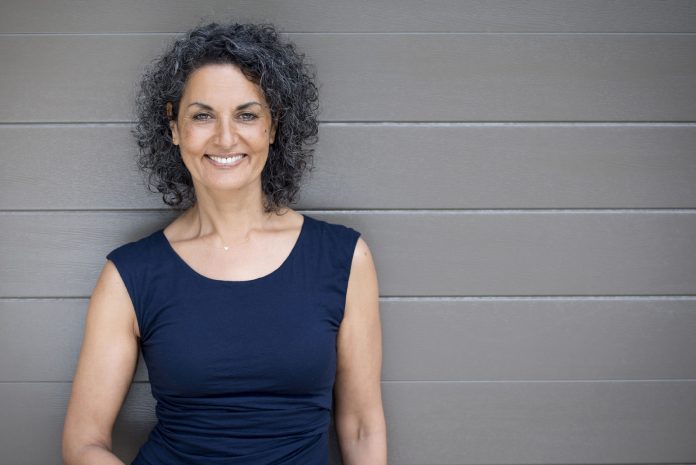Doctors aren’t supposed to have favourite patients.
We are not supposed to feel anything, really. We are supposed to be objective, dispassionate, and to not favour anyone over any other, for we are to have no feelings for any of them. No matter who they are, what they are going through, how they are behaving, how much we relate to them, or how much they inspire us. For we are scientists, and medicine is a serious business.
I thought that was true and tried to live like that once, and ended up in a rehab centre at a young age.
So, now I just live my life as a human being, who practises the art and craft of medicine, and loves it.
I now work in a small country town, and live nearby, and have been caring for some of my patients for up to 20 years. I also see them down the street, at the markets, on the beach, and I have a relationship with them, as a doctor, and as a person.
I see myself as having a relationship with all of my patients, and some of these relationships are closer than others, just as we have many friends and acquaintances but there are some we feel particularly close to. And as with all my relationships, I learn a great deal from my patients, about medicine, about people, and about life.
Going blind is not the end of the world
One of my patients is in her 90s, and when I inherited her from another doctor who had retired, she was already blind from macular degeneration. It was the dry, wear-and-tear, just-old-age kind, so there was nothing we could have done about it, even now. It came on relatively quickly, after her husband died. Her vision is only count fingers in each eye, but this does not seem to stop her from doing much. Despite her disability, she still cares for herself, writes letters, gets people to help her read the replies and listens to talking books, but mainly spends time connecting with and engaging people in conversation.
She comes to see me with her daughter, to say hello and to have her eyes checked for other treatable diseases like glaucoma. We all love these visits. We laugh and joke and just have fun together. We both know there is nothing I can do for her in a physical sense, apart from these checks, but that does not mean I shut down to her as a person.
She is not fazed by her blindness, has accepted it, and makes the most of life in spite of it.
She is not fazed by her age, is mentally as sharp as a tack, and is as joyful as she was when a young girl.
She has taught me that it is not the end of the world to go blind (which is something I was terrified of when I was younger, and quite possibly the real reason I became an eye doctor), and it is not the end of the world to grow old.
She has taught me that it is okay to just love my patients, and to say “I love you” to each other, as we would to any other old friend.
She has taught me that even if I cannot “do” anything more for my patients, that just being me with them is enough; that just being myself can be healing for them, and for me.
Having a hard life does not have to make you hard
I have another favourite patient who comes to see me for regular checks. I took his cataracts out several years ago. He is a Vietnam veteran who has been through horrors that we can only imagine, and yet he has the sunniest outlook on life, and is a big, jolly, giant-hearted man. The only sign of residual hardness is that when he gives you a hug, or shakes your hand, you feel like he may just crush the life out of you!
I have many patients whom I love dearly. Children whose squints I have operated on who have now grown tall and look me straight in the eye; people whose cataracts I have removed and who delight in being able to see clearly again (except for seeing their now obvious wrinkles); people whose glaucoma I tend to and check on regularly so that their vision is preserved for life and whose 6-monthly visits are a marker in both of our lives of the passing of time; people who gracefully submit to injections for macular degeneration, knowing that they would not be able to see without them; people who just come to see me for eye health checks and their appointments roll around with clockwork regularity and we both say we cannot believe that another year has passed already and delight in sharing stories of what the year has been for us.
My favourite patient of all
But perhaps my favourite patient of all is me. I have learned so much from being a patient – how to be a better patient, how to be a better doctor, and how to be a better person.
I have mainly learned the hard way – not seeking help when I was struggling with depression and alcohol addiction during my training, so that I had to get really sick before I was willing to submit to rehab; not seeking help after the birth of my second child when I developed an ovarian abscess due to undiagnosed pelvic inflammatory disease and let it go undiagnosed and untreated until I had to have emergency surgery for a suspected ovarian tumour; not resting after the surgery and lifting my small kids too soon and stretching the scar on my belly; seeking help when I found a lump in my leg and having a cold node removed, but not resting afterwards, going back to work and re-bleeding, causing a huge secondary haematoma that had me on the couch for far longer than I would have spent there had I heeded my surgeon’s sensible advice; not taking time off when I had to have 3 weeks’ radiotherapy when the lymphoma recurred (I had refused it the first time), but going in for treatment early in the morning, then driving to work for the day. I finally relented and let my husband come with me for the last treatment, and when I felt what I had been doing to myself, collapsed in a blubbering heap, from which I had to recover to operate that afternoon.
These life experiences have taught me that doctors in general (or perhaps just me in particular) make pretty terrible patients. We think we know better, we do not follow the rules, we do not grant ourselves the time and space needed to care for ourselves, to heal after surgery, to rest when we are ill. We expect ourselves to be superhuman, and think that the world will stop turning if we take time off to recover from illness and surgery.
But along the way I have also learned to be humble, to be compassionate, to no longer try to self-diagnose but to seek help, to have a GP I trust who knows me well and whom I see regularly for check-ups, to follow instructions when I am given them, and to understand why people don’t, which makes me much more able to sniff out people who are going to flaunt the rules in my own practice and gently set them straight.
I have learned that illness is not a punishment but is often a consequence of us choosing to live in a certain way, and that we therefore have the power to care for ourselves in a way that can recover our health and keep us well to a large degree.
And since I have learned these humbling life lessons, I rarely get a cold, let alone a serious illness. I work hard but give myself time off to play, I care for myself deeply, I rest when I am tired, I eat and drink in a way which nourishes my body, and I make time and space for my partner, my children, our large family and our friends. I love my life and I love being a doctor who has also learned to be a great patient.
This article was first published in MJA Insight 27, on 17 July 2017 as “How my patients taught me to be a better doctor and a patient.”










It is so great to have blogs like these that add to the conversation about Doctors loving their patients and themselves…not hippy love, but love that steps out from behind the role of Doctor and connects with people without fear of compromising anyone.